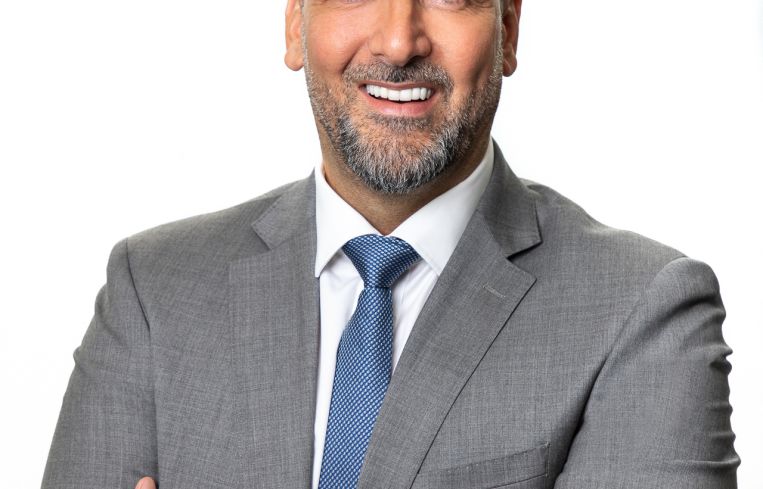Five Questions With James Famularo

“Manhattan is only three miles wide and nine miles long. And everybody on the planet wants to be here,” said James Famularo.
There are many reasons why people decide to leave Manhattan, but many need only one good reason to stay. For some, it’s the city’s retail and restaurant scene. If that’s you, James Famularo, president of retail leasing at Meridian, will tell you the retail section has never been busier, even during the pandemic. And here’s why:
This interview has been edited for clarity and length.
Commercial Observer: What are your thoughts on today’s retail market?
James Famularo: I can honestly say, in my 20-plus years in the business, I’ve never seen such strong demand for retail space, and restaurant space in particular. We have hundreds and hundreds of spaces all over the tri-state area, and we have multiple offers on every single one. There’s a lot of capital out in the market through Paycheck Protection Program (PPP), Small Business Administration (SBA) loans, grants, and also this pent-up demand because of so many businesses that closed during the pandemic. A lot of operators feel opportunistic, and they feel like now is the time to get in and they’ll get a good deal.
How did Meridian’s New York retail leasing team do over the past two years? What were the deals you are working on during Covid?
I know a lot of companies downsized, gave back office space and laid off a lot of people. We went in a different direction. We decided now’s the time that our clients need us more than ever. So we moved to a bigger space. We’ve doubled in size in our footprint and our office. We had 23 people on our team before COVID started. Now we have 43 or 44. So, we’re excited. I say it all the time, but Manhattan is only three miles wide and nine miles long. And everybody on the planet wants to be here. During COVID, we were not as busy as we are now nationally, but we helped clients as they relocated or downsized, and some of them did what we did – they expanded. We did a lot of testing centers for COVID. We did a lot of relocations of supermarkets and liquor stores. We rented hundreds and hundreds of spaces over that time period. And now we’re even busier than we ever were.
Do you think COVID is a turning point for the industry?
I see this all the time in my career. I’ve seen it during the World Trade Center bombing. Before that, the e-commerce bubble burst in the ’90s. And then we saw it with the subprime mortgage crisis in 2008. There are always things that have happened; you could look at doing things optimistically or pessimistically. It’s your choice. We choose to be optimistic because we know New York City is its own universe. It always bounces back. And we’re prepared for the bounce back.
Looking into the next 18 months, what do you think will happen in the market with increasing rates?
We plan to be at 100 agents by this time next year. So naturally, we were very optimistic. The interest rates don’t affect the retail leasing market as much as the sales market. I don’t think it’s going to stop the sales market. As the interest rate goes up, the sale price is going to go down a little bit to compensate for it. So it’s still going to be a potentially good deal for the buyer. Once they buy, they’re going to have to rent [out the space], and that’s when we get a call.
What are some of the broader themes we should be aware of in the retail sector?
We feel that the health and fitness trends will continue very strongly both in the quick service restaurant (QSR) sector and then in the different [asset] classes. Before COVID, we saw tons of classes from SoulCycle, Fitting Room, boxing gyms — which we’ve done quite a few of — and then a whole bunch of Sweetgreen and Just Salad and Dig and all these healthy concepts. So, that whole health and fitness segment of the market, we see that continuing because people are concerned with their physicalities, fitness and nutrition now more than ever, so that’s a big segment that we were focusing on. The restaurants are always busy, also the schools and enhanced learning sector. We are in the process of doing about 16 different schools, continuing education and tutoring classes. This is a huge segment and we’re taking advantage of that. And the last sector we see a lot of activity in is the urgent care sector. Everybody is getting into it.
I think CityMD was one of the pioneers and they opened up some of the locations, but now you have urgent care for the pet, you have dental centers, and it’s just an easier opportunity. When I was a kid, I remember going to the emergency room. I thought I was in hell. You wait in the waiting room and you see people crying and bleeding. Two years ago, my son fell and he needed stitches on his leg. I took him to urgent care. As we walked in [we saw the] beautiful office, nice carpeting laying in the background. [They] give me an iPad to fill out. They walked me to the back to see the doctor. The doctor was very nice and pleasant. He gave stitches to my son’s leg right away, and we were out of there in 15 minutes. It was such a different experience. I knew that this market was going to explode, and that’s when I really started focusing on it.
Emily Fu can be reached at efu@commercialobserver.com.



